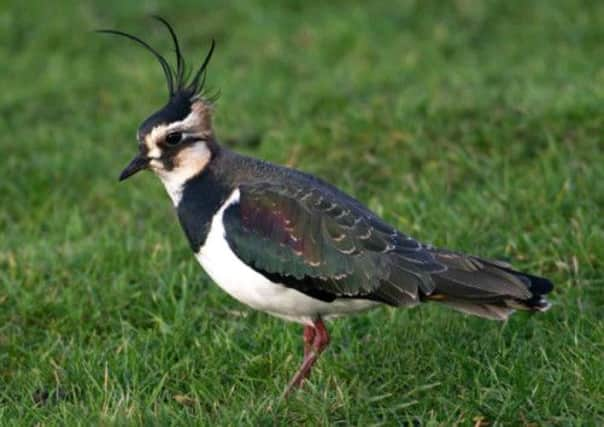Gamekeepers call for action to save Scots waders


The Scottish Gamekeepers Association is to declare 2014 the SGA Year of the Wader, amidst growing fears that Scotland is about to follow Wales in seeing its wading birds decimated.
And Alex Hogg, the association’s chairman, claimed that increased predator control, licensed by the Scottish Government, would be one of the keys to preventing further declines in wader populations across the country.
Advertisement
Hide AdAdvertisement
Hide AdA spokesman for the SGA said: “Ground nesting birds such as lapwing, curlew and plover breed up to three times more successfully on grouse moors, due to heather burning and legal predator control by gamekeepers.
“However, keepers are deeply concerned that numbers are declining in these key areas, too, and the SGA is to dedicate 2014 to highlighting the need for tougher action.
Scotland has lost 56 per cent of its lapwing and curlew populations in the last 17 years with conservationists blaming climate change and habitat loss through farming practices.
But the SGA spokesman explained: “Scottish gamekeepers who work the land every day reckon this is only a small part of the story. They feel that unless Scottish government listens to practical land managers, waders could pass the point of no return and they see Wales as an example, where 75 per cent have been lost in the last few decades.”
Mr Hogg said: “It is clear that new conservation responses are needed to help our vulnerable ground nesting birds. Millions of pounds of tax payers’ money has been spent on costly habitat programmes through the advice of conservation bodies.
“However, The State of Nature Report, which showed 60 per cent of the UK’s species continuing to decline, and the latest BTO Breeding Bird Survey, prove that this approach, when taken alone, has failed to deliver the answers for birds such as waders.”
He continued: “Our keepers, who have physically protected and work to protect curlew, lapwing and plovers on their ground for years, have been warning that this is happening. We now have an imbalance in our uplands that needs to be addressed by government before Scotland goes the same way as Wales.”
Mr Hogg said: “Conservation in this country has centred around the advancement of protectionist policies, site designations and central hand-outs for habitat programmes without any stipulation for predator control.
Advertisement
Hide AdAdvertisement
Hide Ad“When the public sees the return on investment with this approach, they are entitled to ask where the birds have gone and, if this has failed, why we continue to pay for, and play, a losing hand”
He added: “We believe the SGA Year of the Wader, and our ongoing counts, will help the government and the public realise what is happening and what needs to be done before conservation-listed curlew and lapwing, in particular, disappear.
“It has been widely accepted that predation by larger predators can have a devastating affect on the survival of vulnerable prey species, particularly when the predators are increasing and their prey decreasing significantly. The Government needs to adapt to this scientific reality and use the legal licensing powers it holds to relieve the pressure on some of our precious wild birds.
“Licences have also been issued to protect sheep at lambing time from Ravens so there are already examples where the powers the government holds can be used to bring about positive results.
“Throwing public cash, which will be siphoned by conservation groups for habitat schemes, without control of predators, is self-defeating.”
The SGA spokesman said a study of the Berwyn Special Protection Area in North Wales, where grouse shooting ceased when it became a National Nature Reserve , showed that lapwing became extinct, golden plover numbers declined from 10 birds to one and curlew declined by 79 per cent.
He added: “Red grouse declined 54 per cent, hen harrier numbers crashed 50 per cent, black grouse declined by 78 per cent and now 75 per cent of Wales’ surviving black grouse population exists on the one remaining keepered moor at Berwyn. In the same period, protected buzzards doubled in abundance, peregrines increased seven-fold and raven numbers doubled.”
An RSPB Scotland spokeswoman said: “We are pleased that the Scottish Gamekeepers Association is pledging to support wading birds such as curlew and lapwing. This suite of species is indeed suffering worrying declines.”
Advertisement
Hide AdAdvertisement
Hide AdShe continued: “Evidence suggests that fox and crow predation can have an impact on their populations, as such RSPB Scotland accepts that legal predator control allied with good habitat management can benefit breeding wading birds.
“We also believe that projects such as our Wader Friendly Farming Initiative, which offers advice to farmers on how to manage their land for breeding birds, can also play an important role.”
She added: “ We’d be happy to talk to the SGA about ways we can work together to benefit this species and would encourage all landowners and farmers to get behind this commitment to wader conservation.”
A Scottish Government spokesman said: “The Scottish Government welcomes all support for improving Scotland’s biodiversity and is committed to continuing to provide targeted support to farmland birds, including waders, through Scotland Rural Development Programme agri-environment schemes, which have been shown to be effective in reversing some of the past declines of other species of farmland bird.
“The next SRDP will look to improve the targeting of such support to ensure its impact is maximised.”
A Scottish Government spokesman said: “The Scottish Government welcomes support for improving Scotland’s biodiversity and is committed to continuing to provide targeted support to farmland birds, including waders, through Scotland Rural Development Programme agri-environment schemes, which have been shown to be effective in reversing some of the past declines of other species of farmland bird. The next SRDP will look to improve the targeting of such support to ensure its impact is maximised”